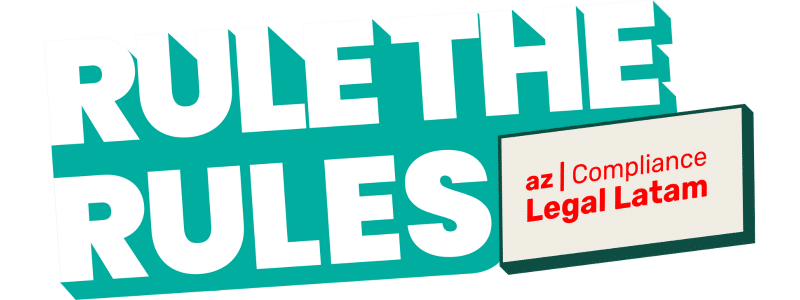This is an interesting pronouncement that clarifies the ownership of the employer when, by means of internal policies, it regulates the behavior of its employees.
It is an undisputed fact that, at present, many companies have been implementing compliance models aimed at establishing preventive measures, as well as actions to safeguard the liability of the organization derived from particular actions of workers.
In this context, it is possible that there may be conflicts between the legitimate powers of the employer, which serve as a basis to dictate rules and protocols of due compliance by their employees, with the fundamental rights of which they are holders.
This is one of the greatest challenges that we believe organizations face, since they will have to establish meeting points to satisfy both claims.
The case we are commenting on this occasion is related to the issuance of a General Code of Conduct (GCC) by a company, which was challenged by a trade union organization, arguing the lack of proportionality of the measures that violated the rights of workers. In this sense, the rationing made by the court (Spanish National Court) to weigh the rights at stake is relevant.
Taking a position on the feasibility of establishing this type of protocols or instructions, the Spanish National Court points out that these are a manifestation of its power of direction that “can only complement, and not replace, national or international legislation, social dialogue or collective bargaining” and that they are rules that “determine the ideal or most appropriate behavior” that have the “purpose of making known what practices the company considers acceptable and those that are not“, to conclude that “it is one thing to determine what is the ideal and appropriate behavior of the employee and quite another to establish obligations, such as the aforementioned, flatly violate the fundamental right to privacy, dignity, honor and even the presumption of innocence” and even states that it affects the data protection regulations.
One of the first approaches made by the court is related to the right to the presumption of innocence invoked by the union organization, which in its opinion would be affected by the Code of Conduct. Analyzing this aspect, the hearing expressed that “it is true that this right has been expanded to the administrative sanctioning law and, in an attenuated form, to the procedures of imposition of sanctions in the labor field, but it must be insisted that in said section of the GGC there is no provision that implies that the worker has to prove that his behavior is ethical, it is only indicated that he should not get involved in unethical activities“.
Referring to another of the aspects that were contested, and which in this case is accepted, it is related to the obligation imposed on the employee to inform the human resources area in the event of being involved in criminal or administrative proceedings. On this issue, the hearing reasoned that “requiring employees to inform about their possible inclusion in a criminal or administrative proceeding in general implies, in the opinion of this Chamber, affecting the private sphere of the employee, especially when it is indicated that they must communicate it even if their participation is not related to their professional performance“.
It is relevant how the court considers proportional the fact that the company can guide the use of private social networks by employees, when they make statements that may affect the organization. Thus, resolving this challenge, the hearing expressed that “the measure is suitable, since it is to avoid that by making these statements and information could reveal business aspects that could have a negative impact on the position of the company within its sector of activity“.
Finally, the Spanish National Court emphasizes that “The measure is appropriate, since the prior authorization is not contemplated with respect to any opinion or information, but is limited to information and opinions on the activity of the company or on the work carried out by the employee. And it is proportionate because the benefit obtained, which is none other than avoiding negative repercussions on the company, does not entail sacrificing the fundamental right, which is only limited if what is to be communicated concerns the latter“.
This is an interesting pronouncement that provides light and clarity regarding the scope and ownership of the employer when, through internal policies, it regulates the behavior of its employees in the context of compliance and compliance models that are becoming more and more widespread.
For more information on these issues, please contact our Labor and Compliance group:
Jorge Arredondo | Partner Labor group | jarredondo@az.cl
Francisca Franzani | Director Compliance group | ffranzani@az.cl




